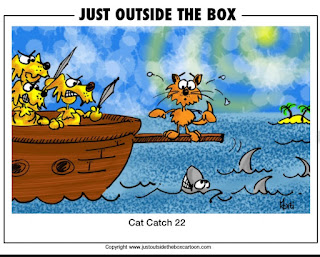Words change their meaning over time. We were watching a TV show the other night and my wife asked me rhetorically, “why do they keep saying fuck and fucking all the time, it has lost all its impact.” I believe that is exactly why. If you look the word fuck up on Google there are serious and amusing articles on the subject but as the word is used in movies and books all the time it comes into common language. Only network news bleeps it even if it is something an interviewee or politician use it, i.e. censorship. But some are still seriously offended by the word even though as is pointed out on a website called Gymglish, that “In Scorsese’s The Wolf of Wall Street alone, the expletive is dropped over 500 times over a 180-minute running time. In Tarantino’s Pulp Fiction, the word is said around 400 times.”
I find etymology fascinating, how words come into being and how they change their meaning. A blog website called “Day Translation” gives examples of how expressions come into the vernacular, they are often coined from another source such as a book title. “Catch-22” by Joseph Heller became an often-used phrase to describe a circumstance … there is no escape in sight because the conditions are reciprocally conflicting” “Names of authors become descriptive words as well, such as “Kafkaesque” and “Orwellian” from Franz Kafka and George Orwell, respectively.”

Words change their meaning as well. You may not have thought about it lately but if somebody tweeted it meant they were making the sound of a bird and today it indicates how much money Elon Musk is losing every day! Obviously, words don’t change their meaning overnight, and we can still speak about a bird tweeting and then it is a question of context unless you teach your bird to peck on the keys of your keyboard! In the future one or the other meaning may fade away and another take its place!!
As early as the late 14th century, according to the Online Etymology Dictionary the word gay meant full of joy, merry, lighthearted and carefree. It came from the French gai and similar words in several other European languages and had similar joyous meanings and is still used in that way today. The surname Gay can be found in Scotland as early as the 16th century and in the 19th century the name appears often in a number of countries. By the end of the 19th century, it began to bear the concept of promiscuity, a brothel was known as a gay house. The use of the word describing homosexual first appears in psychological writings in the 1940’s. I could go on, but my point is obvious a single word can have different meanings both in the time and the way it was used.


To end on a familiar note, according to the Merriam-Webster dictionary, the word Missive is simply defined as a letter, as in one to mail. As synonyms I even see in the dictionary a “billet-doux” (love note) as well as “junk mail” which we can all identify with. I decided to use the word Missive 14 years ago when I wanted to distinguish my weekly emails from the word blog.
The word is derived from the Latin word “missus”, meaning "to send." An example is the expression, “firing off a missive”. Simply put it is a written communication which is exactly what I do every week.






Fascinating!
ReplyDelete